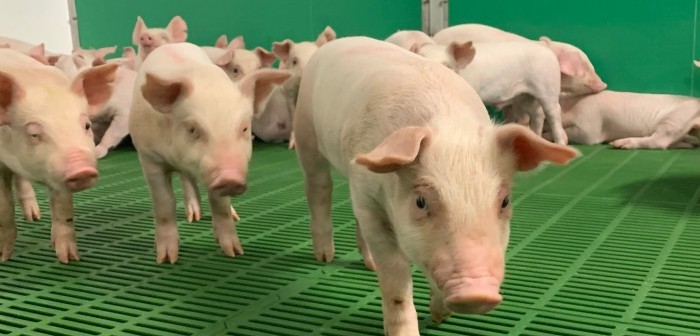NPA senior policy Rebecca Veale urges pig producers to take a close look at their disease prevention measures as ASF spreads in Europe and the UK pig sector faces a disease scare
As the ASF situation in Europe worsens, with an outbreak in Germany close to the French border and continued spread in Italy, there is concern about how well protected UK borders are.
The recent alerts for suspected notifiable diseases (all negated) also brought it home how quickly things can change and serve as a big reminder that the number one protection for pig herds is biosecurity – the word that turns everyone off!
Sometimes we refer to it as disease prevention, which is equally dull, but despite needing a rebrand biosecurity is our best approach.
National biosecurity is down to Government, and NPA continues to iterate how important it is that our borders are protected at every opportunity. The recent debates in the House of Lords and Westminster Hall are also a reminder that NPA have work to do to better educate Peers and MPs on biosecurity.
During both debates there were mentions of the benefits of returning to swill feeding – the team recoiled in horror. We always provide briefings for such debates but haven’t touched on swill feeding as the topics weren’t linked.
As part of our evaluation on how we communicate with MPs and Peers we’ve decided to create a newsletter to get across key information relevant to pigs on a quarterly basis, and swill feeding is going to be one of the first topics we address.
Mitigating risks
Scaling down from national biosecurity, now is not a bad time to stop and reflect on where the risks lie and how they could be mitigated further, whether that be with the pigs, people, feed, equipment etc.
Sometimes creating barriers is all that is needed, it can be as simple as closing a gate and putting a sign up to stop vehicles and people a step before, or even a line across the floor to create a visual barrier where footwear or clothing is changed.
Hygiene is also key, for instance a vehicle wash, whether a plumbed in all singing all dancing system, or disinfectant and materials to do it manually, can help limit the pathogens brought onto a unit. Consider not just preventing disease from entering the unit, but also how you could contain pathogens on your unit should you need to.
Sometimes more fundamental changes are needed, but whatever they may be, asking for advice from others; your vet, your team or other producers perhaps, may bring a different perspective and help you better protect your herd.
There is also lots of information available on the AHDB website.
Nothing in terms of biosecurity is new to us, and it’s not rocket science – it’s simply taking a step back and asking if you could do something better or different. Or if your team are doing what they should be doing every time, it could be that a reminder is all some need.




